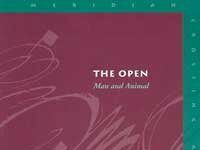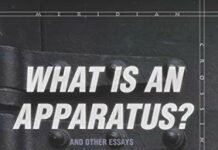
Ebook Info
- Published: 2002
- Number of pages: 176 pages
- Format: PDF
- File Size: 6.65 MB
- Authors: Giorgio Agamben
Description
“In its form, this book is a kind of perpetual commentary on testimony. It did not seem possible to proceed otherwise. At a certain point, it became clear that testimony contained at its core an essential lacuna; in other words, the survivors bore witness to something it is impossible to bear witness to. As a consequence, commenting on survivors’ testimony necessarily meant interrogating this lacuna or, more precisely, attempting to listen to it.Listening to something absent did not prove fruitless work for this author. Above all, it made it necessary to clear away almost all the doctrines that, since Auschwitz, have been advanced in the name of ethics. For my own part, I will consider myself content with my work if, in attempting to locate the place and theme of testimony, I have erected some signposts allowing future cartographers of the new ethical territory to orient themselves. Indeed, I will be satisfied if Remnants of Auschwitz succeeds only in correcting some of the terms with which we register the decisive lesson of the century and if this book makes it possible for certain words to be left behind and others to be understood in a different sense. This is also a way ― perhaps the only way ― to listen to what is unsaid.”― Giorgio Agamben
User’s Reviews
Editorial Reviews: Review “Agamben’s moving text on the Nazi death camps asks what happens to speech when the deracinated subject speaks. Although some say that Auschwitz makes witnessing impossible, Agamben shows how the one who speaks bears this impossibility within his own speech, bordering the human and the inhuman. Agamben probes for us the condition of speech at the limit of the human, evoking the horror and the near unspeakability of the inhuman as it witnesses in language its own undoing.”–Judith Butler, Maxine Elliot Professor of Rhetoric and Comparative Literature, University of California, Berkeley& quot; Agamben’s moving text on the Nazi death camps asks what happens to speech when the deracinated subject speaks. Although some say that Auschwitz makes witnessing impossible, Agamben shows how the one who speaks bears this impossibility within his own speech, bordering the human and the inhuman. Agamben probes for us the condition of speech at the limit of the human, evoking the horror and the near unspeakability of the inhuman as it witnesses in language its own undoing.& quot; — Judith Butler, Maxine Elliot Professor of Rhetoric and Comparative Literature, University of California, Berkeley” Agamben’s moving text on the Nazi death camps asks what happens to speech when the deracinated subject speaks. Although some say that Auschwitz makes witnessing impossible, Agamben shows how the one who speaks bears this impossibility within his own speech, bordering the human and the inhuman. Agamben probes for us the condition of speech at the limit of the human, evoking the horror and the near unspeakability of the inhuman as it witnesses in language its own undoing.” — Judith Butler, Maxine Elliot Professor of Rhetoric and Comparative Literature, University of California, Berkeley– Judith Butler, Maxine Elliot Professor of Rhetoric and Comparative Literature, University of California, Berkeley Review “Although some say that Auschwitz makes witnessing impossible, Agamben shows how the one who speaks bears this impossibility within his own speech, bordering the human and the inhuman. Agamben probes for us the condition of speech at the limit of the human.”―Judith Butler, University of California at Berkeley About the Author Giorgio Agamben is one of the leading figures in Italian philosophy. He is the author of Homo Sacer: Sovereign Power and Bare Life; Remnants of Auschwitz: The Witness and the Archive; Profanations; The Signature of All Things: On Method (the last three published by Zone Books), and other books.Daniel Heller-Roazen is the Arthur W. Marks ’19 Professor of Comparative Literature and the Council of the Humanities at Princeton University. He is the author of Echolalias: On the Forgetting of Language, The Inner Touch: Archaeology of a Sensation, The Enemy of All: Piracy and the Law of Nations, and The Fifth Hammer: Pythagoras and the Disharmony of the World, all published by Zone Books. Read more
Reviews from Amazon users which were colected at the time this book was published on the website:
⭐I am writing this review to counter-act another review, which asserts that Agamben “places himself in a position of having a truer knowledge of life in the camps than those who were actually there,” and that Agamben tries to ‘correct’ the testimonies of actual survivors. This is such a serious assertion it borders on slander, and Agamben does nothing of the sort, not on a single page of this book. Thus, it’s no surprise that that reviewer gives no example of what he is referring to with this assertion. And not incidentally, this book “argues” that bearing witness has little to do with an “accurate knowledge” or the “correctness” of the content of the testimony. Rather, for Agamben, “the value of a testimony lies essentially in what it lacks” (pg. 34). It is clear that this reviewer condemns Agamben’s argument as “nothing new” without first grasping it; and it is no surprise that their review doesn’t actually articulate the argument that it is condemning with such a swift brush. Before denouncing an argument, one must be able to present it oneself (especially in a review that is meant to inform potential readers). In my review, I will attempt to outline Agamben’s trajectory in support of this work, a work which I (along with Lost-Lacanian) believe is stellar and definitely worth the “difficult read” that it requires.Agamben begins with Primo Levi, a survivor of the camp who became a writer in order to bear witness to Auschwitz. To quote Levi, who speaks here with a voice common to all survivors of the camps: “We, the survivors, are not the true witnesses.” This is because those who could have properly served witness to the camps and the death chambers have, obviously, died before they could testify. Thus: to assume the responsibility of bearing witness is to assume a responsibility that cannot be assumed, to bear witness to what the witness cannot bear witness to, for all “complete witnesses” are dead: “no one can bear witness from the inside of death” (pg. 35). But this is not all. A phenomenon common to all studies of the camps (from which Agamben draws heavily and critiques very concisely as he advances his thought) is the phenomenon of the “Muselmann.” The Muselmann was the name given to those in the camp who had lost all will and consciousness, those who were driven to an unconditional fatalism, those whose very life and gaze seemed to have fled them. Emotion could no longer be evoked in them and letters from family members no longer gave them hope. These were the men in whom power had totally overcome their ability to be, who cared only to scrounge for bits of food (Agamben’s “bare life”). Other prisoners were most concerned with avoiding the Muselmann because they felt that a Muselmann of their own was constantly on the verge of emerging in them. Agamben cites testimony of survivors whose first concern was to retain that “inner kernel” of their person, that thread of hope that kept them “alive” in spite of the constant possibility of becoming a “lifeless” Muselmann themselves. Referencing a rare videotape taken of the camp, Agamben points out that it seems comparatively easy for the cameraman to linger over the corpses and dead bodies, but that when one of these wandering, half-living Muselmanner appear in the shot, the camera quickly shifts back to the cadavers. And yet it is precisely to this phenomenon that folks like Levi feel indebted to bear witness; in fact, to this horrid phenomenon (of absolute desubjectification) alone. It is at this point of the Muselmann where Agamben sees the state of exception that might key us into a universal, where all the categories that we apply to “human” slip into the “non-human”: in the Muselmann it is impossible to distinguish between the two.It is here that Agamben shifts to the question of dignity, the very worth of which the camps strip away, and shame, which Agamben shows is the dominant sentiment of survivors. He cites Wiesel who says, “I live, therefore I am guilty.” It is this shame that the survivor is incapable of mastering, for it lies in the inability on the part of the survivor to separate the guilt of having survived (the nagging question “Why did I survive and not another?”) and the innocence of having survived (the fact that survival seemed not to be based on any criteria but random chance). It is here that Agamben begins to identify this sentiment of shame as the dominant sentiment of the subject. Shame is grounded in the incapacity of a being to break from itself and to change the “it was.” Shame is grounded in the fact that we cannot hide what we would like to hide. Shame is there where our impulse to flee ourselves meets up with the impossibility of evading or escaping ourselves. Shame is grounded in the intimacy of being present to ourselves even as we are losing ourselves (which reaches its limit in the unbearable sight of the Muselman), when we remain the “I” even through the most severe desubjectification, self-disorder, self-oblivion, expropriation, and the very destruction of our experience (pgs 104-106). Shame, like the subject, is there in that “flush” that consigns us to that from which we cannot get away. Here, to-be-subjected and to-be-sovereign are inseparable and yet forever distinct and disjoined. The subject is forever fractured in its passivity, between its receptive role (Muselmann, desubjectification) and its active role (witness, re-subjectification as bearing witness to the desubjectification). After considering the sentiment of shame at length, Agamben argues that the subject shows itself to have no other content than its own desubjectification.For Agamben, bearing witness to desubjectification is what constitutes the ethical subject as such.I’m unable to go into detail with Agamben’s lengthy excursus into desubjectification in relation to poetic consciousness (via Keats, Celan, Pessoa), philosophy (via the Greeks, Heidegger, Foucault), and linguistics (Saussure, Benveniste). But this excursus, which comprises the latter half of the book, is the portion of his research that shows testimony in its proper weight, import, and scope. It is a truly masterful interweaving of sources and perspectives, and it is presented with the ease and clarity that any reader of Agamben is accustomed to. When forced to summarize a point of intersection, I would say that Agamben “argues” something to this effect: knowing is barred speaking and speaking is barred knowing. Consciousness, the “I,” only has a consistency qua language as the event of language; but this very event divides the “I” constitutively, for to enter into discourse is already to be fractured. Thus the irreducible disjunction between “vital functions” and “inner history,” which is a duality that Agamben traces through the work of biologists and psychologists (Binswanger, Bichat, Kimura). His research into Auschwitz survivors who must bear witness to that which they cannot bear witness meets up with all his other research threads under the general idea: “To be conscious means: to be consigned to something that cannot be assumed.” Suffice it to say, for an attentive reader, Agamben’s meditations on enunciation, voice, consciousness and the “I” will prove to be infinitely illuminating and thought-provoking, especially for those who are willing to put themselves at stake in this reading and to truly think through our being “constituted divided.”Ultimately, “In testimony, the empty place of the subject becomes the decisive question” and “it is a matter of situating the subject in the disjunction between a possibility and an impossibility of speech” (pg 145). Or again, to bear witness is to “place oneself in one’s own language in the position of those who have lost it” (pg 161), which clearly hearkens the writings of survivors like Levi who attempt to bear witness to those “complete witnesses” who are barred from witnessing and language: “The authority of the witness consists in his capacity to speak solely in the name of an incapacity to speak– that is, in his or her being a subject” (pg 158). In the place of those who could not testify “for themselves,” those who could not even speak, the one who bears witness leaves behind a remnant that bears witness to this inability to speak. In this bearing witness, the survivor (but also any witnessing-subject) founds a language as what will remain of Auschwitz (just as a poet founds a language). When Arendt was asked “What remains?” after Auschwitz, she replied “The mother tongue remains.” Agamben might have also cited Celan, another survivor of the camps, who has written that language was the one thing that remained with him despite all of his losses. We could also point to Celan as the poet-survivor whose difficult poetry also shows us the impossibility of speaking put to the task of speaking, to speak in utter darkness and yet bear witness by this very lack and impossibility– truly, to stutter a testimony in the hopeless night of non-knowledge.I’ve tried to give an exposition of the main ideas of this book and to encourage any interested party to read it. Hopefully I have done some “justice” to its broad yet focused trajectory, which has deep resonances with the rest of Agamben’s oeuvre. I hope that what lacks here in my review is also what, in the spirit of testimony, can give it its value.
⭐I read this book after having read Agamben’s big book “Homo Sacer.” I found the analysis of bare life (homo sacer) in that book to be so fascinating that I picked up “Remnants,” to see where else Agamben might go. This book is some of the most compelling theory I have read to date. The book has three major categories of analysis: the witness, the musselman (literally, the muslim), and shame. Each of these three categories have to do with the inhuman quality of being human and the speakability of that which is unspeakable. Indeed, Agamben deploys subtle thought in order to construct these internal contradictions that actually played on in the extreme case of Auschwitz. As one might expect from the title, this book is haunting. The testimonials given of the Musselman are particularly disturbing. Indeed, the experiences of Auschwitz is unspeakable. Perhaps, most startling is that Agamben argues our modern political paradigm is basically a sedated Auschwitz in which all of us can be turned into Musselmen, indeed, the musselman is that inhuman potential within our humanity. In short, this book is haunting, captivating, yet, unspeakable in the topics it tackles and the issues with which it wrestles. If you are not acquainted with Agamben, then, you might first be taken off guard by his verse and thesis style. But once you get in the flow, the form of his writing adds to its content.
⭐Remnants of Auschwitz is one of Agamben’s earlier works, but his cutting intelligence definitely still shows. The subject matter is the concentration camp, and more specifically, the language of the experience that follows the survivors back into the civilized world. Drawing extensively on the memoirs of Primo Levi, Agamben examines the Musselman (the Muslim), the most desperate of those interred at the concentration camps. He examines the shame of the survivors for having survived, and the powerful sympathy that they felt towards those who had to clean up the bodies in the gas chambers. Among all these threads of inquiry are the heart wrenching stories that will stay with you long after you put down this book.I will not lie to you – this book is difficult to read. It’s subject matter is the most powerful experience of the 20th century. However, Agamben’s demystification of the concentration camp serves its purpose; we, as humans, should learn from this tragedy, not bury it in the past.
⭐Agamben is an academic to the utmost. His prose are beyond scholarly, making it somewhat difficult to understand. You must commit yourself to rather close reading to understand what he is getting at with his passages.As far as the content is concerned, this is a truly remarkable, yet haunting, piece on The Witness.
⭐This was required reading for my course in Literary Criticism. I have read quite a lot of Holocaust literature, and in my opinion this book is not a stellar addition.
⭐great quality, would buy from again
⭐good book, good seller!
⭐I do a lot of research on WW II and the Shoah/Holocaust and I’ve been looking for this one.It also arrived early, thank you.
Keywords
Free Download Remnants of Auschwitz: The Witness and the Archive in PDF format
Remnants of Auschwitz: The Witness and the Archive PDF Free Download
Download Remnants of Auschwitz: The Witness and the Archive 2002 PDF Free
Remnants of Auschwitz: The Witness and the Archive 2002 PDF Free Download
Download Remnants of Auschwitz: The Witness and the Archive PDF
Free Download Ebook Remnants of Auschwitz: The Witness and the Archive




